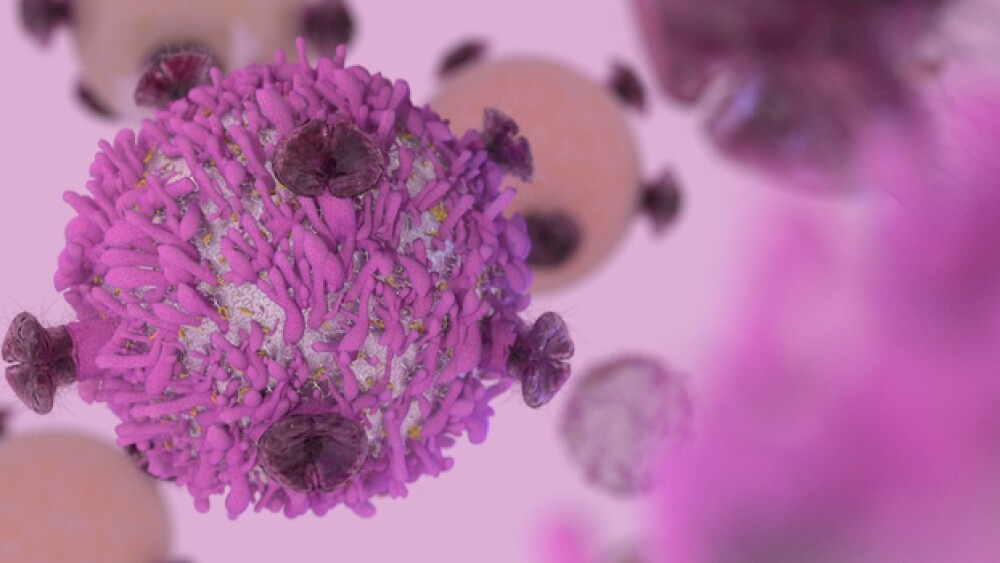Some cancer cells have a remarkable and frightening sense of self-preservation to avoid immunotherapy treatments. That is the finding from a new study conducted by researchers at the Fred Hutchinson Cancer Research Center in Seattle.
Some cancer cells have a remarkable and frightening sense of self-preservation to avoid immunotherapy treatments.
That is the finding from a new study conducted by researchers at the Fred Hutchinson Cancer Research Center in Seattle. The study results, published in Nature Communications, took a close look at why immunotherapies do not always provide lasting treatments for some cancer patients.
The study focused on Merkel cell carcinoma patients and looked at why those patients who had been treated with immunotherapy would sometimes their cancers shrink at first but then come back. For the study, the Fred Hutchison researchers used a new technology that looked at how cancer cells change under the pressure of immunotherapy treatments.
Merkel cell carcinoma is a rare skin cancer caused by a common virus. About 20 percent of Merkel cell patients have an initial positive response to immunotherapy treatment but then relapse. It has been unclear why, Dr. Kelly Paulson, senior fellow at Fred Hutchison said.
By answering the question of “why,” Paulson said it will allow scientists to develop immunotherapies that can get toward long-term tumor control to make cancer a more chronic disease.
“Cancer is really tricky. We’re just starting to learn how tricky it is,” Paulson told BioSpace ahead of the study’s publication.
With the rise of immunotherapies like checkpoint inhibitors, Paulson said it was an exciting time to attempt to harness the body’s immune system in order to take out the cancer without affecting other cells in the microenvironment. Since the checkpoint inhibitors came onto market, she said they have been effective in certain types of cancer. She said with some melanomas, the checkpoint inhibitors have even eradicated some cases of metastatic cancer.
“There’s potential for the immune system to cure cancer. But, it’s challenging because not everybody gets that cure,” she said.
In the case of the Fred Hutchison study, the researchers studied the cancer cells from two patients Merkel cell carcinoma patients who initially responded to therapy, but saw their cancers return. The two patients were treated with a combination of a checkpoint inhibitor and a T-cell therapy that involved removing the cells from patients, multiplying them in a lab and then infusing them back into the patients. The T-cells were not engineered when they had been removed.
The patients responded well at first. Paulson said biopsies showed the T-cells got into the cancers and facilitated the tumor regression.
But then the cancer returned in both of them. In one patient, it was metastatic.
Paulson and colleagues used single-cell RNA sequencing to investigate the molecular changes in T cells, tumor cells and all other cells in the tumor microenvironment to see what had changed in the patients. And what they learned was both fascinating and a bit scary. They saw that the tumor was hiding from the T-cells, Paulson said.
“It was really quite tricky how the cancer came back.”
The tumor was able to accomplish this by removing one piece of human leukocyte antigens (HLA), a gene trio that allows T-cells to find the cancer cells. The single-cell RNA sequencing showed one piece of the HLA trip had been hidden by the tumor and that allowed the cancer cells to return without the T-cells noticing.
With that new knowledge in hand, Paulson and colleagues returned to the lab. They cultured cells from one of the patients and applied drugs already used clinically for other cancers that turned the cancer marker back on. The results from the in-vitro study will potentially be able to help other cancer patients who relapse following immunotherapy treatment.
Paulson said what she has learned is that a multi-pronged approach is the best approach to treating cancer than relying on a single treatment.
Paulson said they have known that other cancers have tricks to avoid destruction, but to her knowledge, this is the first time this particular trick with Merkel cell carcinoma has been reported.
“It’s a new variation on a theme that’s been known,” she said.
With the Fred Hutchison research now published, Paulson said it will likely lead to many questions about other cancers and their responses to immunotherapies. Paulson said researchers can begin to look hard at immunotherapy resistance across cancer settings in order to understand how cancer comes back after immunotherapy and why.





